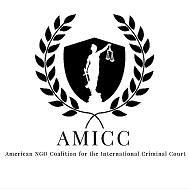 |
| ICC Prosecutor Fatou Bensouda. Photo by Max Koot Studio |
By Audrey Kim
On June 15, 2012, Fatou Bensouda was formally sworn in as the new Prosecutor of the ICC. She was elected in December 2011 by the Assembly of States Parties (ASP) for a nine-year term and replaces predecessor Luis Moreno Ocampo.
According to the Rome Statute, the treaty that governs the ICC, a Prosecutor must have (a) high moral character, (b) high competence and extensive practical experience in the prosecution of trial of criminal cases, and (c) excellent knowledge of and fluency in at least one of the working languages of the court. With her former position as Deputy Prosecutor of the ICC and credentials both on the national and international level, the ASP decided that Ms. Bensouda was the most qualified candidate for the position.
Born on January 31, 1961, Ms. Bensouda grew up in Banjul, the capital of the Gambia. She was born into a polygamous family, as her father had two wives. She grew up in a large family with more than a dozen siblings. Ms. Bensouda is married to a Gambian-Moroccan businessman and is mother to three children, one of whom is adopted.
In a recent interview, Ms. Bensouda explained that at a young age she decided to become a lawyer because of the domestic abuse she saw happening in her community. “It wasn’t happening in my immediate family, but in Africa, you live in communities and you see it…and there was always this innate feeling in me saying this shouldn’t happen,” she said.
Education: After studying law in the University of Ife in Nigeria from 1986 to 1987, Ms. Bensouda attended the International Law Institute in Malta from 1990 to 1991 and holds a Masters in International Maritime Law and Law of the Sea. She is the first Gambian international maritime law expert.
Career: Ms. Bensouda has had an extensive career, both at the national and international level, making her highly qualified for the position. Since 2004, Ms. Bensouda has been the ICC Deputy Prosecutor. Before her work in the ICC, Ms. Bensouda was a Legal Advisor and Trial Attorney at the International Criminal Tribunal for Rwanda (ICTR) from 2002 to 2004, of which she was later Senior Legal Advisor and Head of the Legal Advisory Unit. In 2002, she was briefly the General Manager of the International Bank for Commerce Limited in Gambia, and since 2000 she has been a member of the International Advisory Council of the International Board of Maritime Healthcare.
In her native Gambia between 1987 to 2000, she was successively Senior State Counsel, Principal State Counsel, Deputy Director of Public Prosecutions, Solicitor General and Legal Secretary of the Republic, and then Attorney General and Minister of Justice. It was during her work as Senior State Counsel from 1990 to 1992 that she attained her Masters in International Maritime Law. As Attorney General and Minister of Justice, she was constitutionally responsible for the control and supervision of all criminal prosecutions in the Gambia. During her tenure as Minister of Justice, she was also a delegate to the Economic Community of West African States (ECOWAS) in a series of meetings on the ECOWAS Treaty, the Western African Parliament, and the ECOWAS Tribunal.
As the first female and first African prosecutor of the ICC, Ms. Bensouda has received much attention and support, especially from the African Union (AU). The ICC has been criticized for focusing extensively on Africa, and Ms. Bensouda’s appointment is expected to alleviate the tensions between Africa and the ICC. In response, she remarked, “I am an African and I am very proud of that... I'm not going to discount it or dismiss it. But I think it is not because I am an African that I was chosen for this position… I am a prosecutor for 121 states parties and this is what I intend to be until the end of my mandate...”
Although she is supported by the AU, Ms. Bensouda has rejected the AU’s criticisms that the ICC implements selective justice against Africa. In the OpenForum conference in Cape Town, South Africa, she said, “With due respect, what offends me most when I hear criticisms about the so-called African bias is how quick we are to focus on the words and propaganda of a few powerful, influential individuals and to forget about the millions of anonymous people that suffer from these crimes … Indeed, the greatest affront to victims of these brutal and unimaginable crimes … is to see those powerful individuals responsible for their sufferings trying to portray themselves as the victims of a pro-western, anti-African court.”
In the courtroom, Ms. Bensouda projects remarkable calm and poise. She has a commanding presence and combines passion, sensitivity, and self-control. Furthermore, her thoughtful demeanor and ability to communicate clearly and eloquently are some of her strongest traits. Acknowledging Ms. Bensouda’s dedication to global justice and her strong personal character, many have expressed their support and high confidence in Ms. Bensouda’s leadership.
According to Richard Dicker, the international justice director for Human Rights Watch, “In Syria and other strife-torn countries over the past 10 years, the ICC has come to symbolize the last, best hope for justice. We look to Bensouda’s leadership to advance cases, build bridges with victims, and push countries to support its impartial application of the law to get the job done.”
ICC President Song has stated, “I am confident that her strong independent voice, legal expertise and genuine concern for human rights issues will contribute greatly to the continued fight against impunity."






